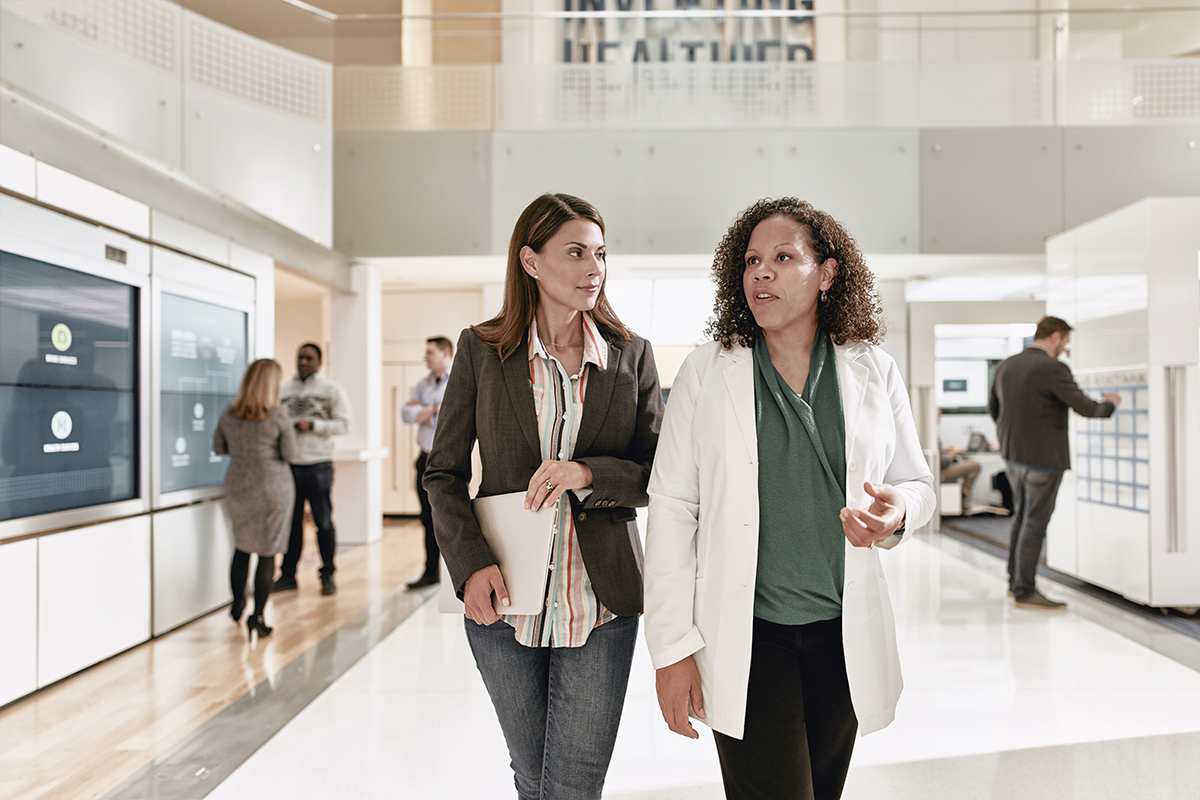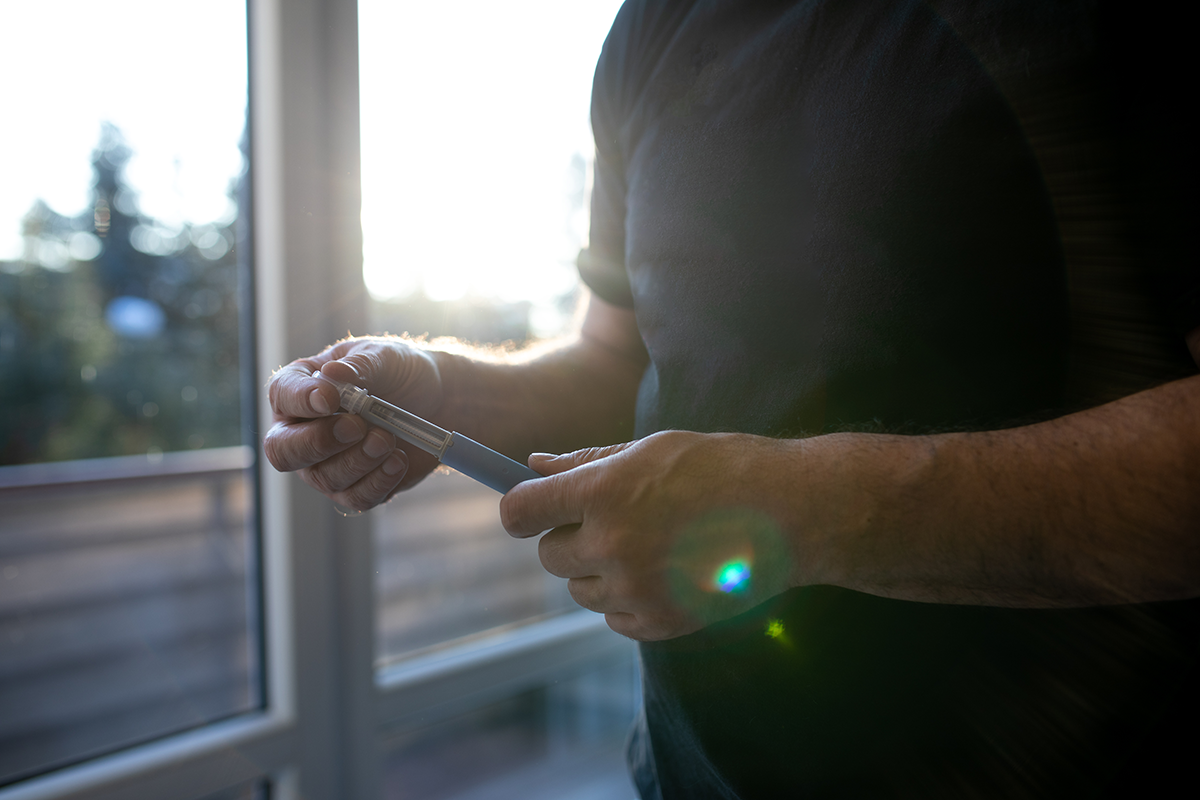Are you drinking enough water with your medications?

We often underestimate the significance of staying well-hydrated. Drinking enough water each day — about half an ounce to an ounce of water per pound of body weight — is essential for optimal health. Adequate water intake improves digestion, normalizes blood pressure, increases cognitive function, boosts energy, reduces joint pain, regulates body temperature, and so much more.
Hydration becomes even more important when you’re taking medication. Here is what you need to know about hydration and medication.
Why hydration is important when taking medication
How many times have you choked down medication without water or with the smallest amount possible? Taking medication with water is very important for a few different reasons.
- Water (or other liquids) helps medication pass from the mouth to the stomach and small intestines to be absorbed by the body, thereby maximizing its effectiveness. Swallowing medication without enough water can prevent medication from working properly.
- Water is essential for your kidneys to process and excrete waste from your medication.
- Proper hydration aids in digestion and minimizes the risk of gastrointestinal issues related to the medication, as well as reduces common side effects of medication like constipation or dry mouth. For example, taking nonsteroidal anti-inflammatory drugs (NSAIDs) like aspirin or ibuprofen without enough water or on an empty stomach can increase your chances of irritating your esophagus or stomach.
How to know if you’re drinking the right amount of water with your medication
The amount of water you need with your medication really depends on the medication that you’re taking. For some, small sips of water might be enough. For others, you might need to drink a full glass of water.
Some medications can’t be taken with certain liquids like milk or fruit juice because they affect absorption. Always read the medication label to find out how much water to take with your medication and whether or not you should be taking it with food. If you’re not sure, ask your doctor or pharmacist for guidance.
Factors that influence how much water you need
While there are general recommendations for how much water you should be drinking, the amount varies based on several different factors:
- How much water you’re getting from other sources — You can consume quite a bit of water from the foods you eat. Fruits and vegetables like melons, strawberries, celery, and romaine lettuce have high water content.
- The health conditions you have and medications you take — Individuals with certain conditions, such as uncontrolled diabetes or kidney disease, may have higher hydration needs.
- Your activity level — The more physically active you are, the more water you need to replenish water lost via sweat.
- The temperature — Hot weather can cause excessive sweating that can necessitate increased fluid intake.
- How old you are — Older adults don’t sense thirst as much and are therefore more prone to dehydration.
Medications that can cause dehydration
While it’s important to drink water when taking medication, it’s equally important to understand which medications make you more prone to dehydration.
- Diuretics remove salt and water from your body when you pee. They are commonly prescribed to treat hypertension and heart conditions because they help to decrease the amount of fluid in your blood vessels to ease pressure. This, in turn, increases urine output and the potential to cause dehydration.
- Laxatives, especially ones containing stimulants, can cause excessive fluid loss through diarrhea.
- Blood pressure medications, including ACE inhibitors and angiotensin II receptor blockers, can interfere with a person’s urge to drink and blood flow through the kidneys.
- Diabetes medications, like metformin and SGLT2 inhibitors, can lead to dehydration. A side effect of metformin is upset stomach and diarrhea. SGLT2 inhibitors prevent the kidneys from reabsorbing blood glucose that’s being filtered, causing sugar to be excreted through urine. This can lead to frequent urination.
If you take these medications, it’s important to familiarize yourself with the warning signs of dehydration. These include symptoms like thirst, dark urine, a smaller volume of urine, fatigue, dizziness, lightheadedness, dry mouth, dry skin, headache, rapid heartbeat, low blood pressure, confusion, and irritability. If you experience severe dehydration symptoms, reach out to your doctor or visit your nearest emergency room.
Fluids that keep you hydrated (and ones to avoid)
Water is always the best choice for remaining hydrated and taking your medication. If you don’t like plain water, you can always consider non-caffeinated herbal teas, water infused with fruits and herbs, or electrolyte drinks.
When you’re dehydrated, it’s best to avoid fluids that can make you even more dehydrated. It’s generally recommended to avoid caffeine, alcohol, and sugary drinks as they can increase urine output and fluid loss. Caffeinated drinks, alcohol, milk, and various acidic beverages like citrus juices may also interact with the medication you take, affecting its absorption or causing side effects.
Our pharmacists are always here to help
At Express Scripts® Pharmacy, our dedicated team of pharmacists are available 24/7 to answer all your questions, including ones related to how much water to drink with your medication and if your medication has dehydrating side effects. Learn more about what Express Scripts® Pharmacy can do for you.
Posted date: February 23, 2024


